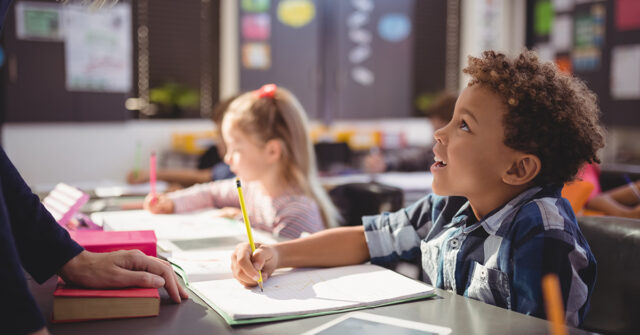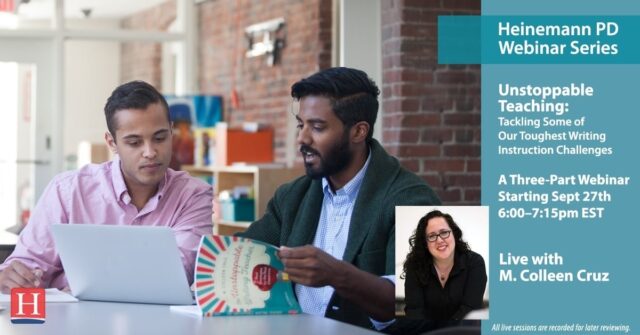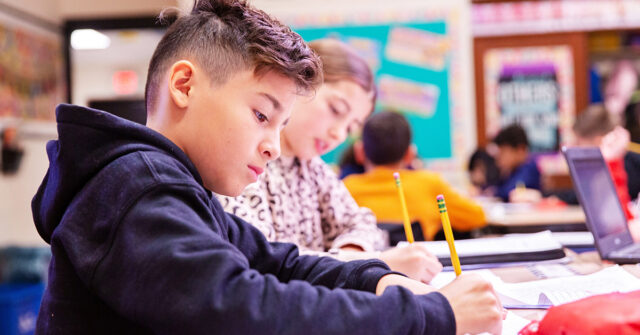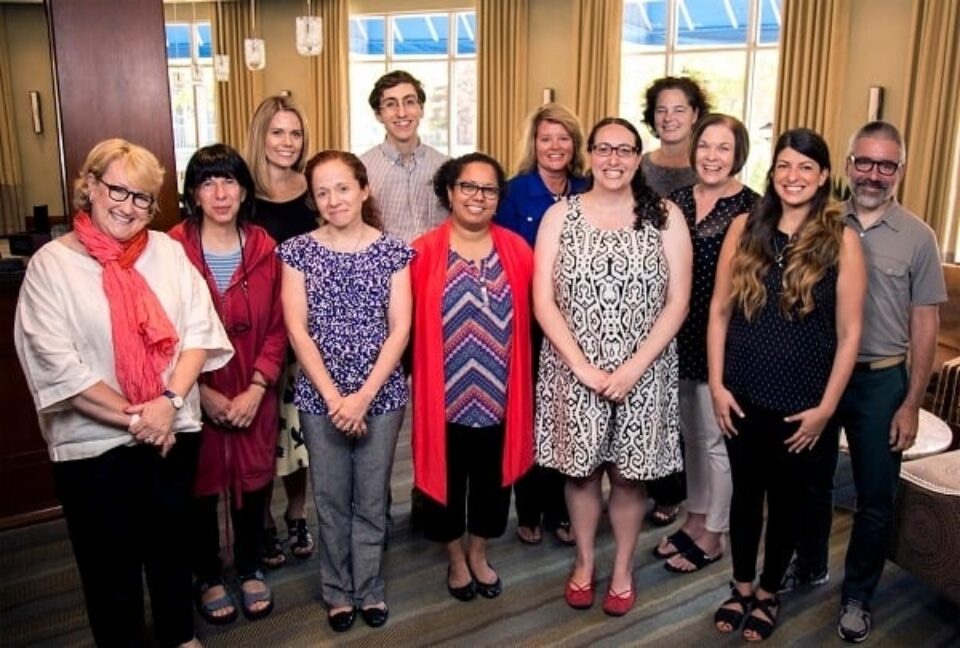
Valerie Geschwind is a Heinemann Fellow with the 2014–2016 class, and has been an educator for six years. In today's post, Valerie begins the second round of Fellows blog posts, and writes about her time researching the fellows themselves.
By Valerie Geschwind
When I took on the role as a Heinemann Fellow, I didn’t yet know that I would be leaving my kindergarten classroom to become a Staff Developer for The Teachers College Reading & Writing Project in New York City. As a staff developer, I travel daily to schools in New York and around the country, supporting literacy instruction.
Since, in this new career chapter, I have found myself without a school community to call my own, I am not researching in quite the same way my colleagues in this fellowship are. Here is where the luck comes in: I have been charged with the task of researching the Heinemann Fellows themselves. I have been taking a bird’s eye view on their research, noticing trends in their findings as well as on their research processes. And what a journey it has been!
As I’ve pulled back and listened to each Fellow discuss their work, the very first thing that has jumped out at me is their insatiable curiosity. It isn’t a typical “How?” or “Why?” curiosity. It is a deep-rooted curiosity that fuels them to make things better for kids, for teachers, for schools. Not, “How can I make this better tomorrow?” but, “How can I make this better forever?”
What are the choices we make that impact larger changes in classrooms, schools, and the field?
As educators, we need to work to get through each day, but we also need to keep the bigger picture in mind. We need to think, “What are the choices we make that impact larger changes in classrooms, schools, and the field?” For example, you may be like Lisa Birno, who is inquiring into new ways to make talk equitable for all of the students in her classroom, or like Sascha Robinett, a Charter School Director who supports teachers in being the owners of their learning and evaluations. Or, you may be interested, as is math teacher Michael Pershan, in questioning whether written or verbal feedback is more useful for students—a question that will enable us to be mindful not only of instructional differentiation, but of differentiated feedback as well. Maybe you are an Amy Clark type—Amy is finding ways to breed a love for poetry in her students, but at the root of that work, she is modeling what it means to take risks in trying something new, making mistakes, changing plans, and persisting, through her complete transparency with students. It’s clear that each Fellow’s project has more far-reaching implications for change than those limited to their classrooms.
All of these action research projects, and the others, are bigger than the classroom or school where they originate. They already have had huge impacts for kids and educators, but even more so, they are all tied together in their quest to make things better in our educational system. As you are reading, I hope you find yourself thinking that you, too, would like to make changes that begin to cause a ripple-effect outwards. Join us! Here are some action steps that the Fellows followed to support their curiosity that you could follow as well:
- Find your passion. Ask the question, “How can I make this better for children, better for educators?” What is your “this”? Becoming the kind of curious educators that I have the honor of standing beside in this fellowship begins with that question. This is the type of curiosity that goes the distance.
- Read everything. If this is a burning question of yours, there is a good chance it is a burning question for many others. Get your hands on any professional text, read every article or blog post you can. Reading what has been done will help you deepen your understanding.
- Make a plan. How will you begin? Find ways to implement change. Make sure that you will be able to measure growth not only in large ways. Day-to-day growth is important to take note of as you go on your journey.
- Build a support system. Find colleague to be curious with. They may be in your building. If not, find a virtual connection to passionate educators through Twitter. There are teachers like you out there! They might share your same exact passion, or maybe, like the Fellows, they will be deeply curious, but all studying different topics. Regardless, make sure you a team to keep you going.
- Celebrate often. Celebrate, when things are going well and you can see the shift. Celebrate when things aren’t going well. Congratulate yourself for being persisting through the hard parts, for rethinking your plan, for changing everything you thought would go well. Celebrate this messy process that is creating change, making our schools better for kids and teachers alike.
I can’t wait to see the work of this fellowship reach all of you. This fellowship needs to be bigger than just ten people. Share your own projects, passions, and curiosity below so we can work together to effect big change.
♦ ♦ ♦ ♦
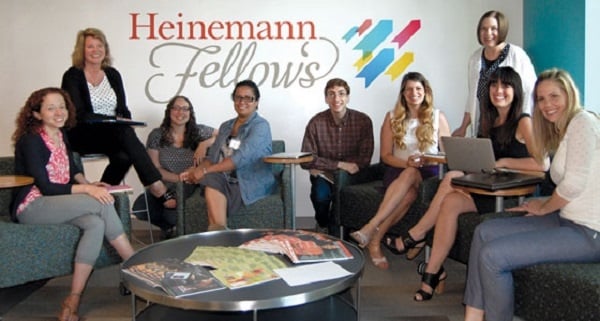
Valerie Geschwind is a staff developer with TCRWP in New York City. Her research project is the Heinemann Fellows themselves, and she will chronicle the story of this inaugural class, observing what effect each Fellow's involvement in the program has on his or her practice.
Follow Valerie's progress on Twitter @ValGeschwind.
